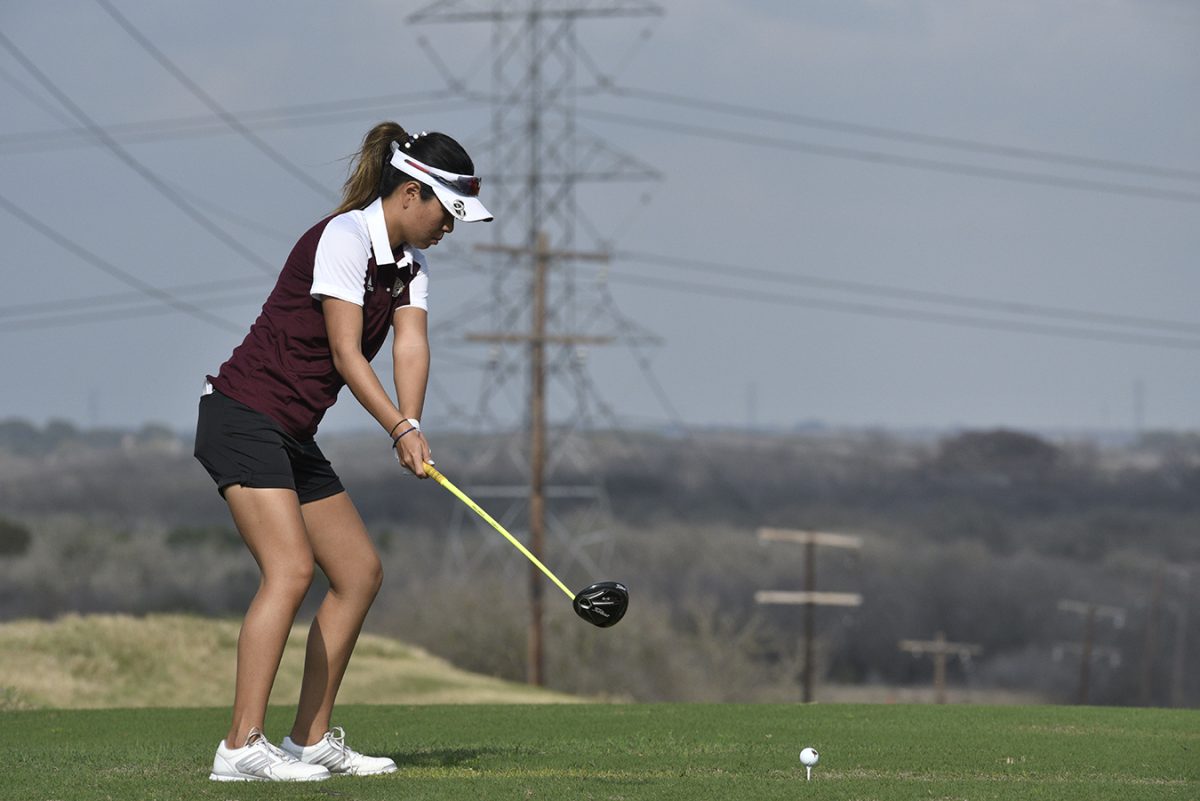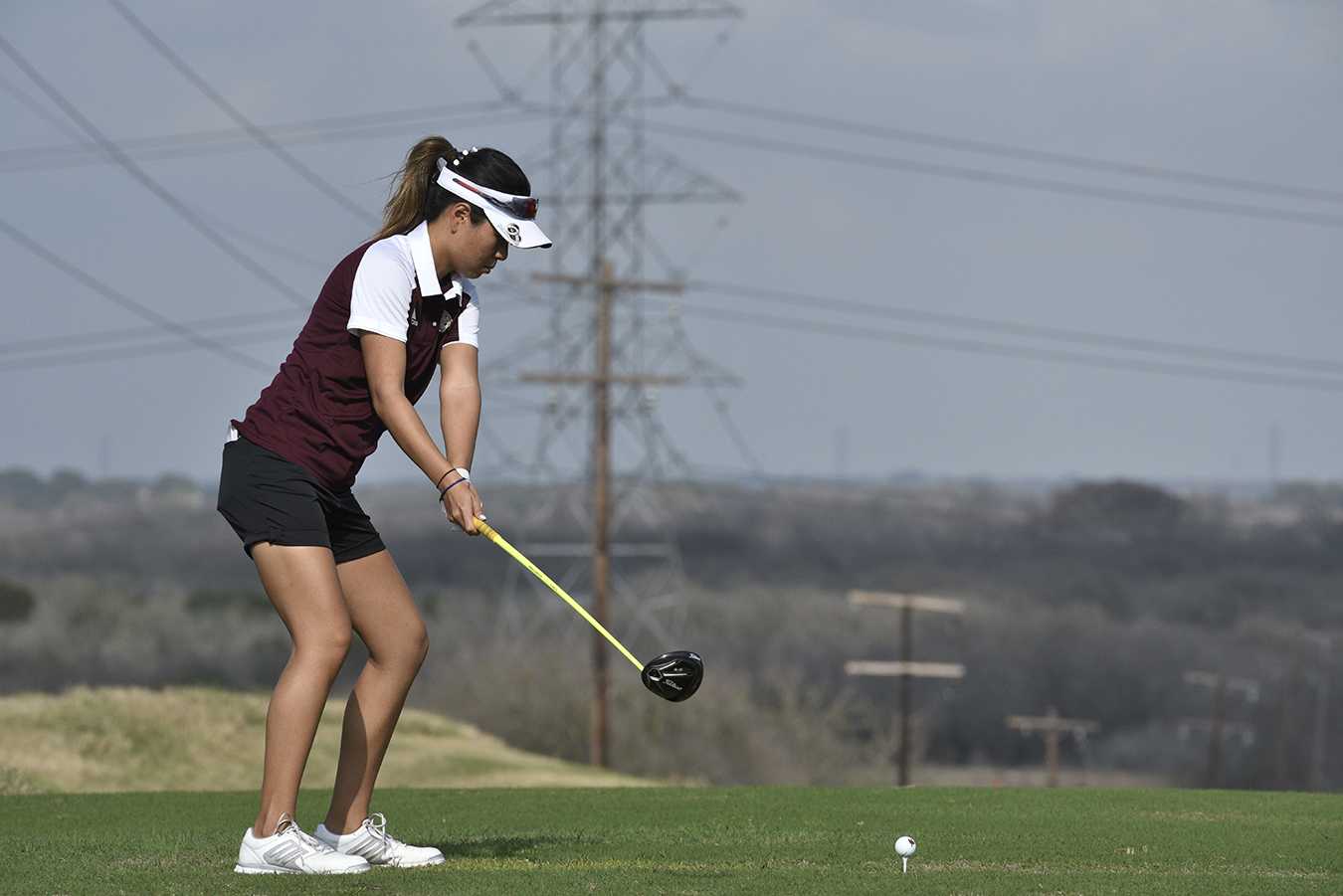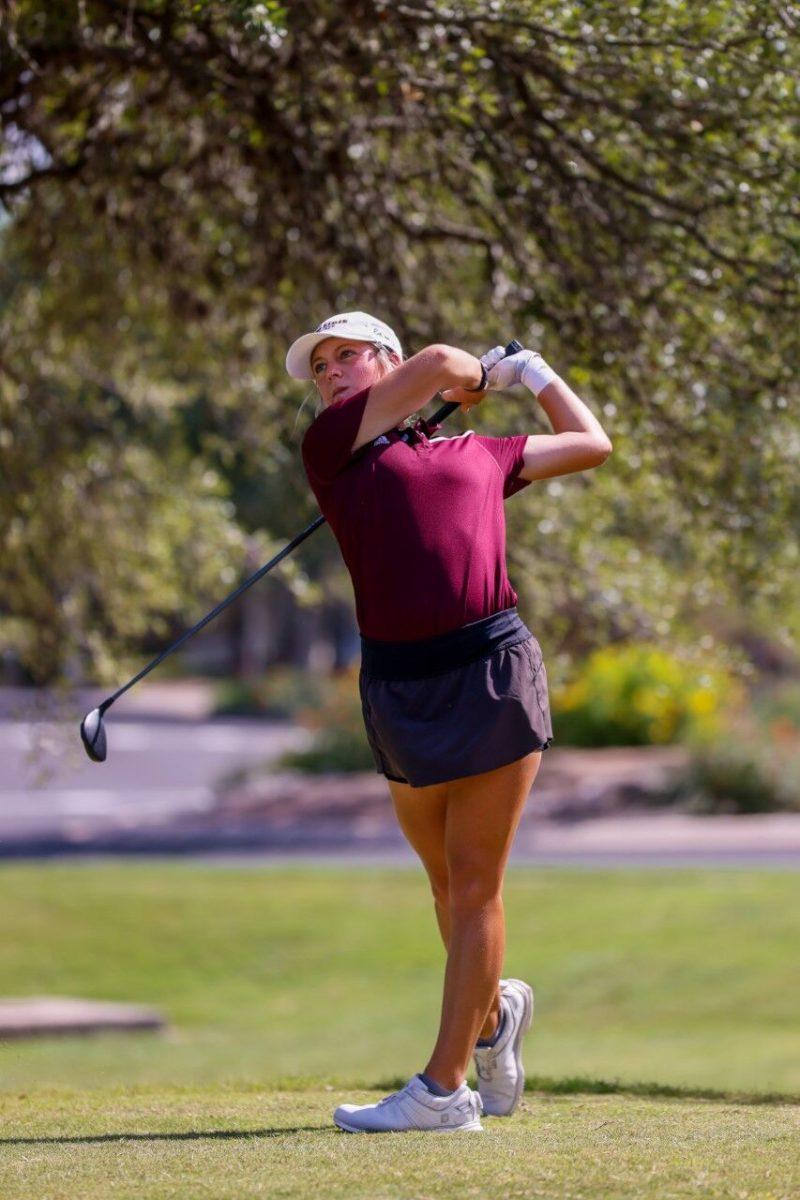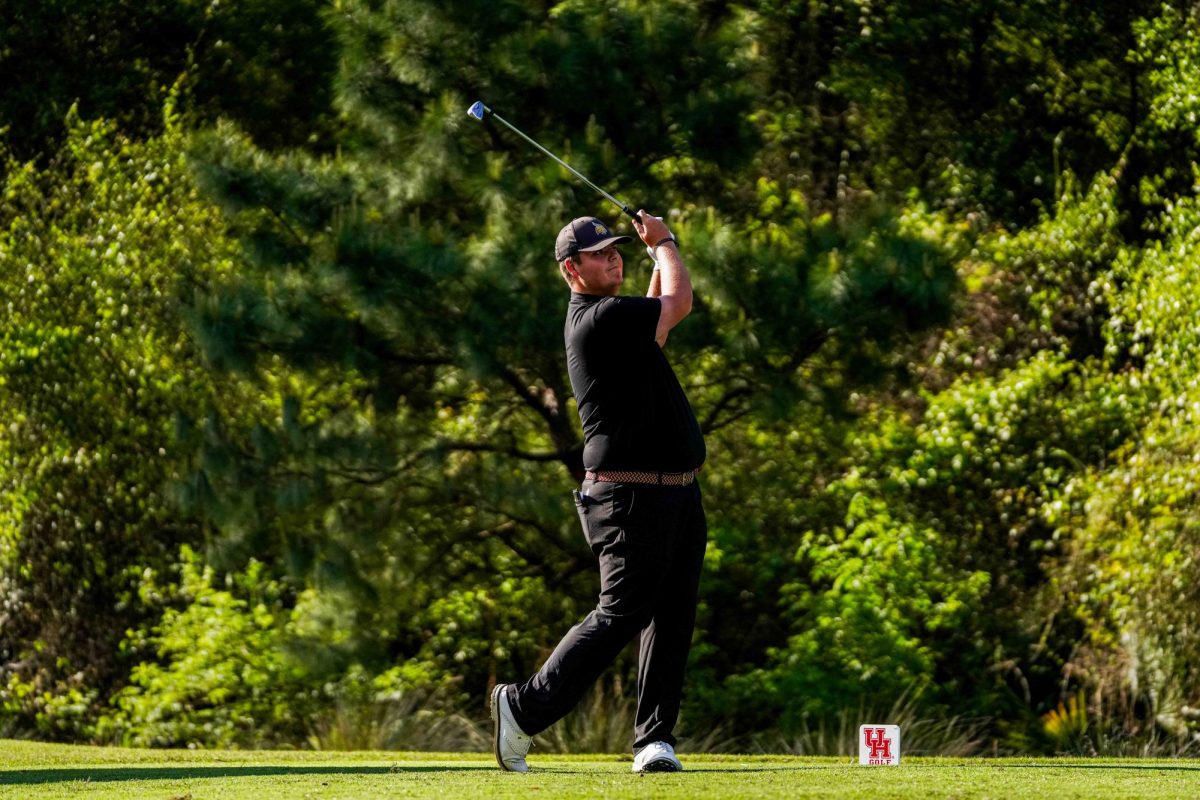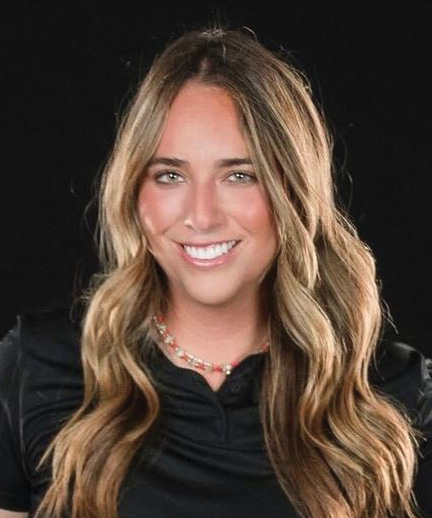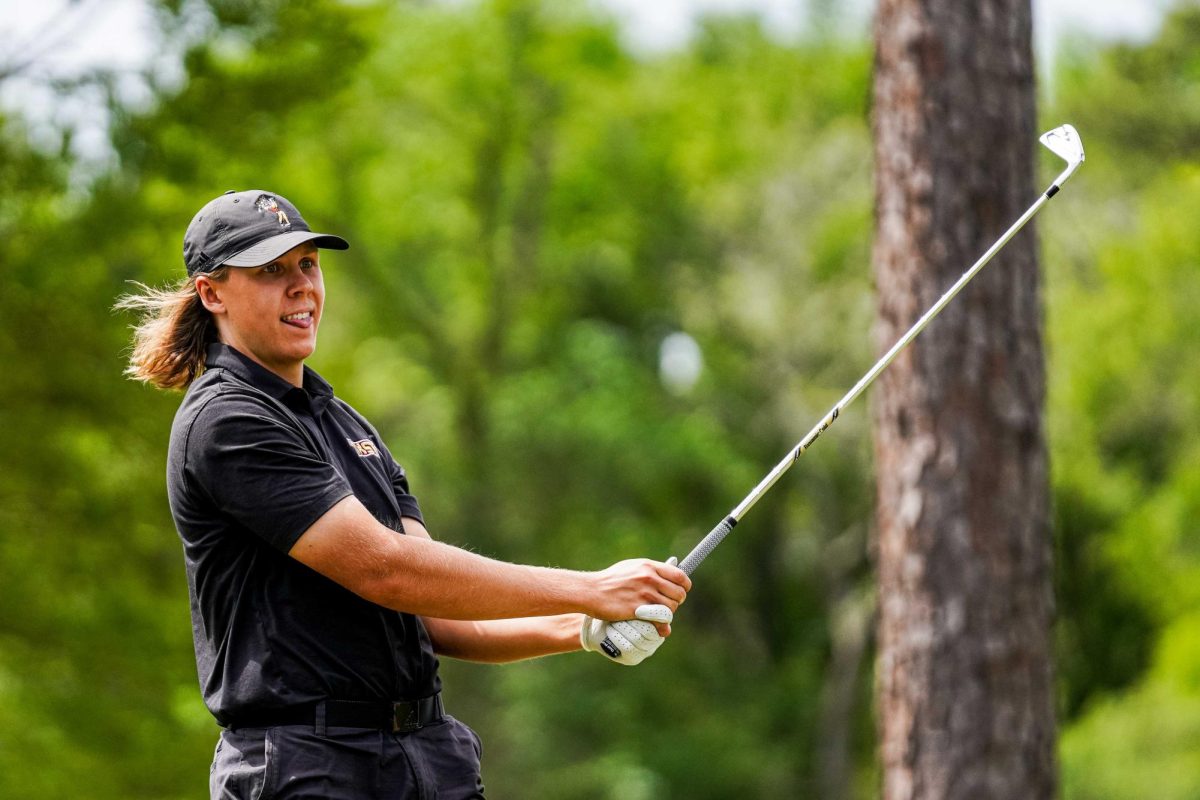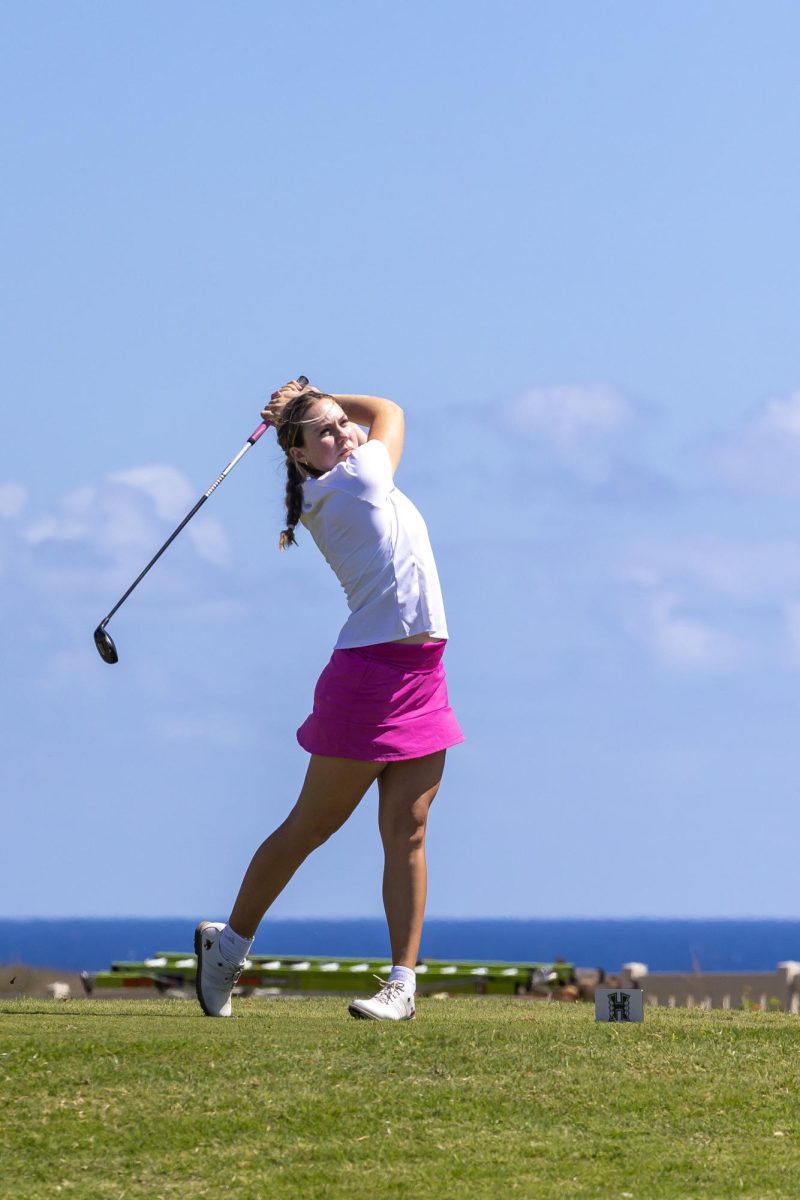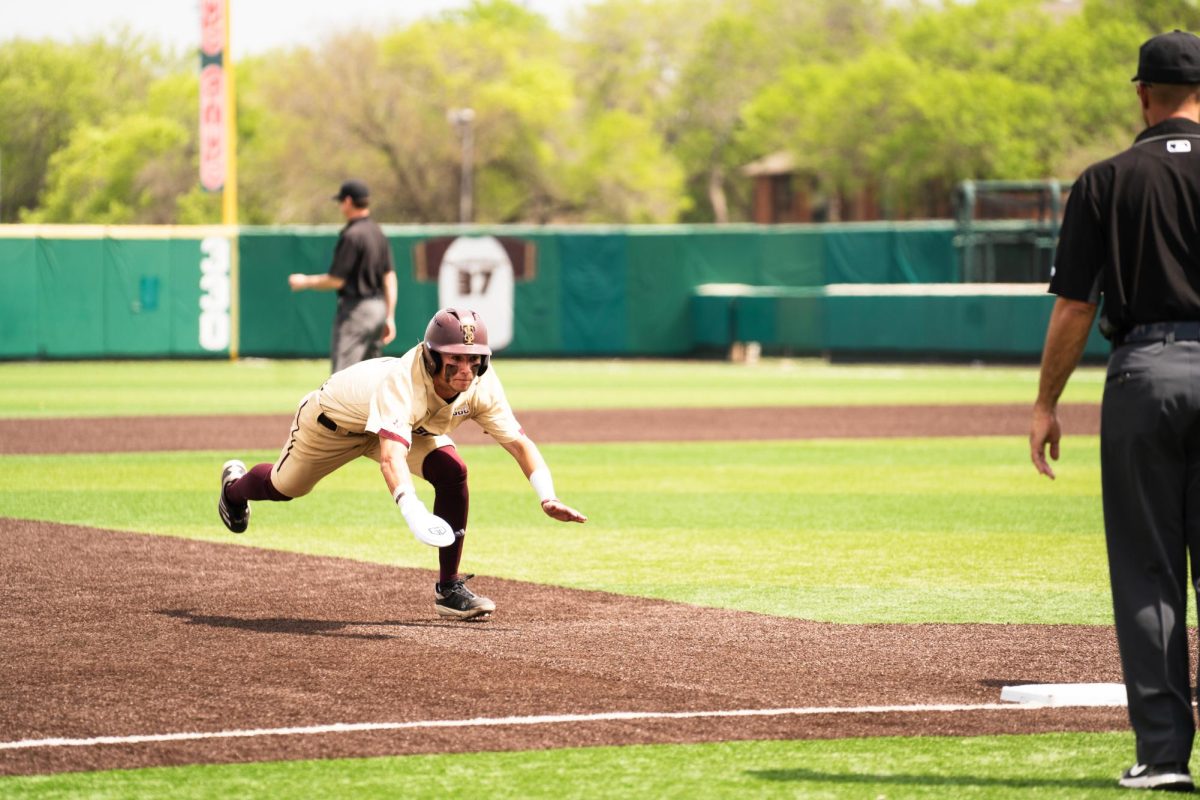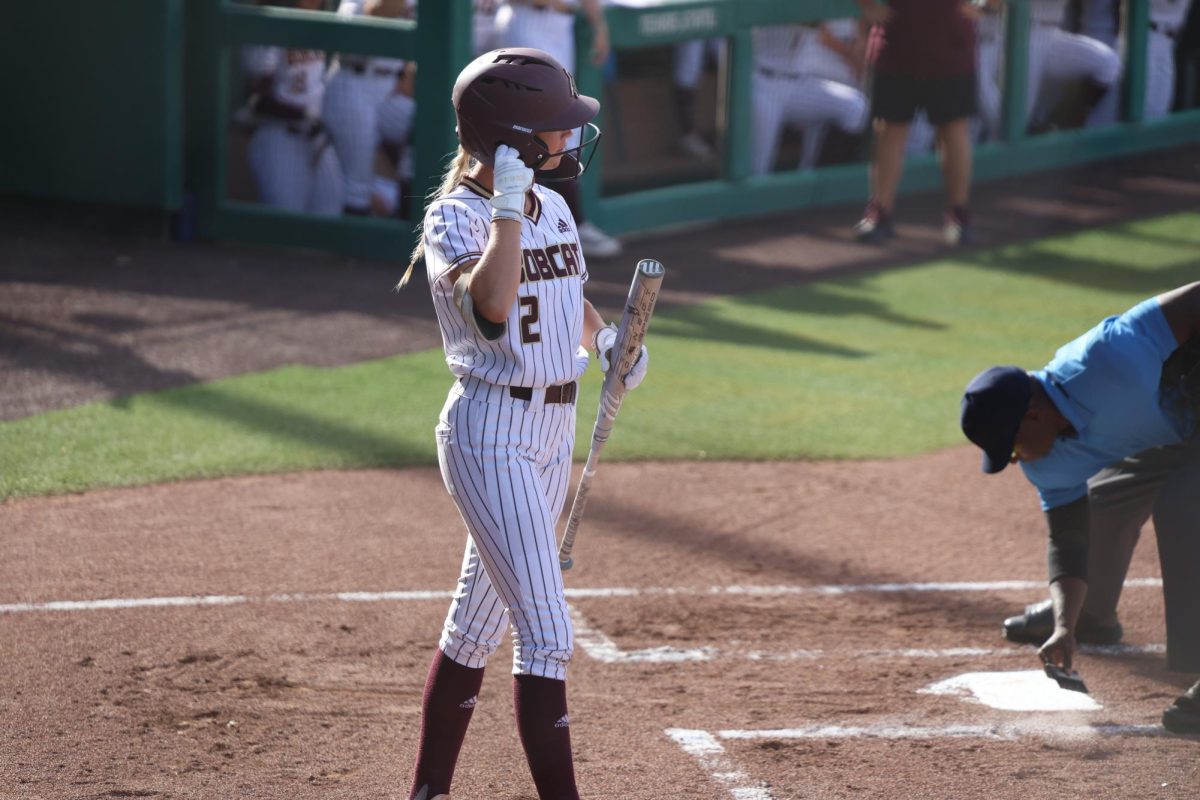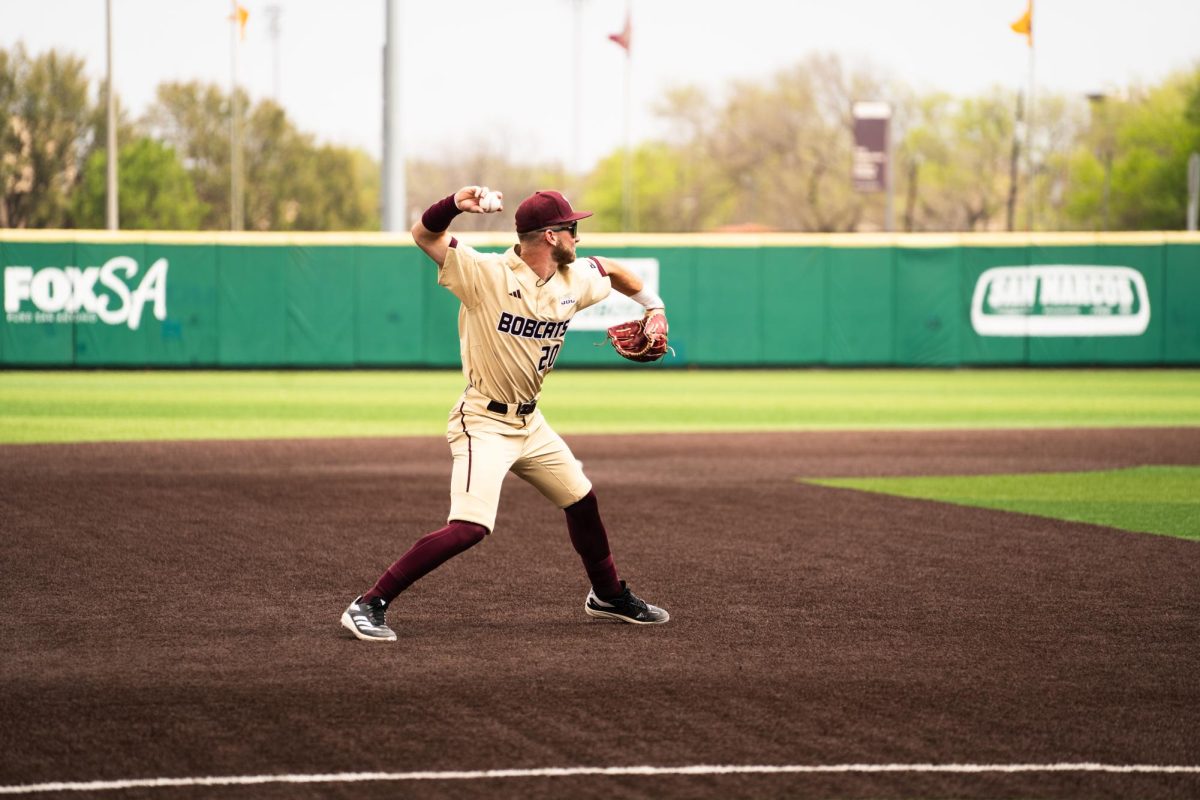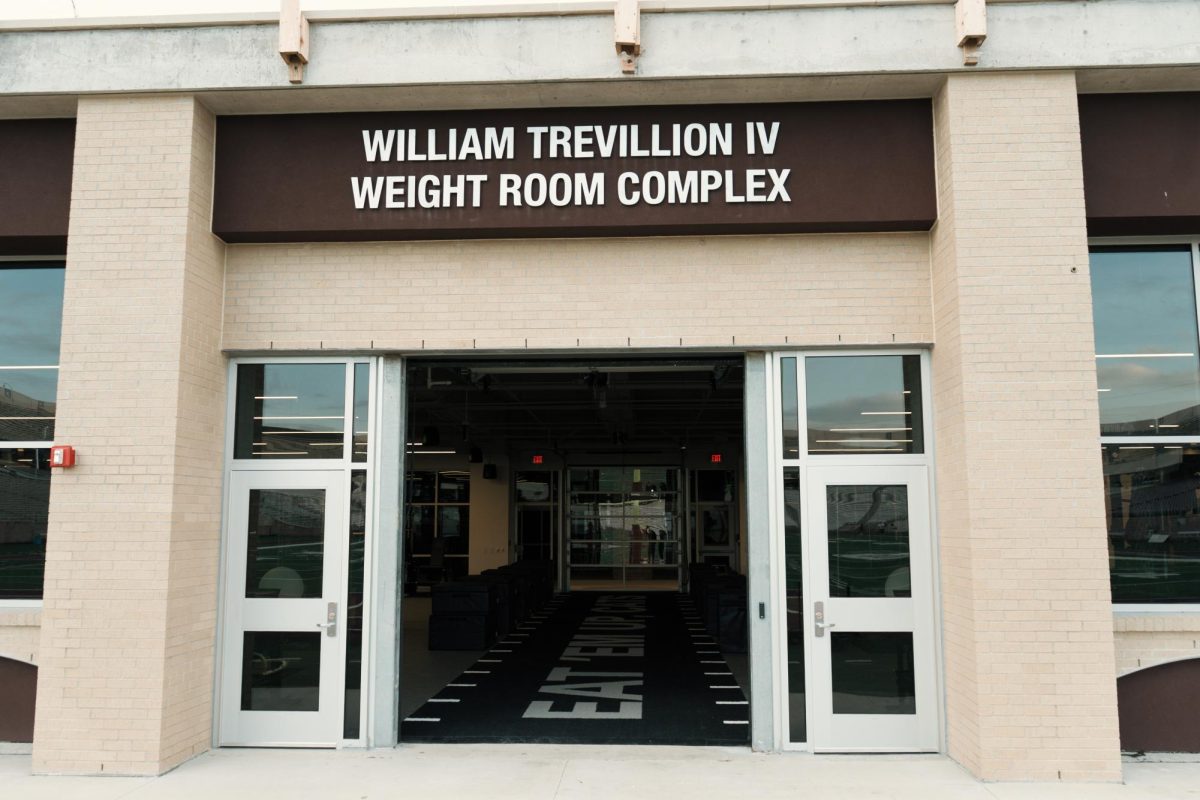International athletes’ journeys to Texas State
Three years ago, Sean Yi Yip was dead set on packing her bags and enrolling at a law school in London. Now, she plays golf at Texas State.
The Kuala Lumpur, Malaysia native is no stranger to travel and spent her high school years at the Presbyterian Ladies’ College in Melbourne, Australia. Yip, who placed ninth at the women’s golf Sun Belt Championships on Wednesday, chose boarding school on a whim at the age of 14.
“We didn’t have the best education system back home,” Yip said. “One day, I just went up to a table to learn about the school, and then I worked on convincing my parents to let me go.”
Despite her law school goals, Yip was hooked on golf and had a nine-month gap before her semester began. Instead of relaxing, Yip got a coach and hit the golf course, training day in and day out until she got noticed by some colleges.
“I thought, if it doesn’t happen it doesn’t happen, but I might as well give it a shot,” Yip said. “When I heard from the coach, I just kind of hopped on the plane and came to Texas.”
Yip is one of many international athletes who chose Texas State to gain knowledge, cultivate their athletic careers and learn about a different culture at the same time.
The recruiting process usually begins on the athletes’ side, with many putting profiles up online and even hiring an agent to get scouts interested. After contacting Texas State coaches, the players schedule phone calls and visits to find out if the university is right for them.
So why Texas State? While Yip says that she was just looking for a place with warm weather, many of the athletes were unsure because they hadn’t heard of the university and had heard negative stereotypes about Texas. Some chose the school partially because it was the most accredited option, and all the athletes were swayed by their connection with Texas State’s coaches.
New Zealand native Ben Collerton, a decathlete who currently holds the Sun Belt and school record for the event, said that he was mainly attracted to coach Fabien Corbillion’s friendliness and experience as a former international decathlete.
“He and I have a great relationship, and we basically hit it off right away,” Collerton said. “I think he related to me more because he’s international too, and he understood what it was like to be in a foreign country. He also has a more European style of coaching, which is more similar to what I’m used to.”
As with all student-athletes, international newcomers must balance their grades alongside their sport. Ana Perez, who plays on the women’s tennis team, said that this challenge wasn’t new because she had been training alongside school for most of her life. Originally from Quito, Ecuador, the senior was once second in the nation and participated in the South American Games before she hit college.
“It’s all about managing your time,” Perez said. “A lot of people would find it hard, but we’re used to it. You can do everything, but you have to be disciplined because you don’t have time to waste.”
The friction between school and sport continues past college for some international athletes, however. Collerton is training to qualify for the World University Games and possibly the 2024 Olympics, but the biology junior is also considering medical school.
“If I go to med school, I can’t really continue track,” Collerton said. “It’s tough because these are two things I’m most passionate about, but they’re such a time commitment.”
There are more challenges to these international athletes than juggling academics and athletics at a Division I school. Simply walking out of the airplane onto Texas soil was a shock for some students. Freshman Live Hilton, who hails from Norway, hadn’t made a visit before her decision and was unpleasantly surprised as she stumbled into the August heat.
Hilton also thought of the state as a holdout of the Wild West, complete with horses, cowboys and a desert landscape. Some students experienced culture shock as well and struggled with learning how to interact with people of a different culture.
“The first semester was pretty tough because it was hard to adjust to English and to just understand the way people are,” Hilton said. “It’s just hard to get used to it because it’s a whole different culture. The practices were tough to adjust to too, because at first I was struggling the most in the heat, and everyone else was okay. Now, I’m way more used to it.”
Despite the misconceptions, Hilton has grown to love some aspects of American life and enjoyed some success, including her current spot as No. 1 in the Sun Belt in her signature long jump event. Most of the athletes have felt welcome and found friends on campus and within their sports teams.
“It’s way better to be in a culture where you can talk to people,” said Hilton. “I’m an extrovert, so I love how people are so open and easy to get to know here.”
Both Perez’s and Yip’s teams are mostly international students, which has helped them to click despite their different nationalities.
“It’s cool knowing how differently people of different cultures think and react and what is expected from you to other people,” Perez said. “I like knowing about things that happen in different places and I wouldn’t be aware of them if I didn’t have my team. We spend 24/7 together, so we’ve got a tight bond.”
Even though many of the players view their teammates like family, being away from their real families and friends at home can take a toll. Perez, who was nominated to the Sun Belt Conference’s second team on Tuesday, credits her parents and their unconditional support for putting her in the position she is now.
“Whenever I’m down, (my mom) is always positive,” Perez said. “She never asks if I win or lose, she just asks me how I felt. (My parents) don’t put crazy pressure on me, which happens a lot in sports, and I think that’s part of my success.”
There’s a flipside to their homesickness, however. Perz said that alongside the new experiences of a foreign country, the athletes chose the United States because the NCAA provides a supportive balance between athletics and academics.
Many universities in their home countries do not provide sports programs, and so schools may not care about athletes who miss a class or vice versa. Hilton said the United State’s relatively unique setup has provided these athletes with a haven to grow in both aspects of their life.
“In America, they’re very good at combining both academics and track, so you can study beside doing sports,” said Hilton. “Here, the coaches really care about your grades, and your professors want you to do well too, so everyone’s looking out for you. I also wanted to learn English and just felt like this was a good experience for life in general.”
All of the athletes have high hopes for their upcoming seasons. While Yip has finished out strong with her top 10 conference performance, Perez closed her season with 10 singles victories as well as six doubles wins. Collerton and Hilton are looking to win their events at the Sun Belt Outdoor Championships on May 10-12.
As for the future? While Collerton’s decision is on hold until his senior year, Perez, an exploratory studies major, isn’t positive about her next move. Hilton, a freshman, is dedicated to qualifying for several meets this summer, and Yip is looking to either begin playing professionally in the Ladies’ Asian Golf Tour or go back to her original law school plan.
Follow Texas State’s sports programs at txstatebobcats.com or follow the athletic program, track and tennis teams at @TxStateBobcats, @TXStateTrack and @TXStateTennis respectively.



